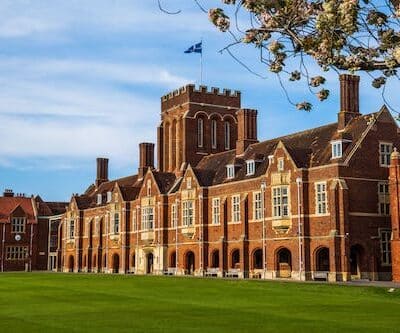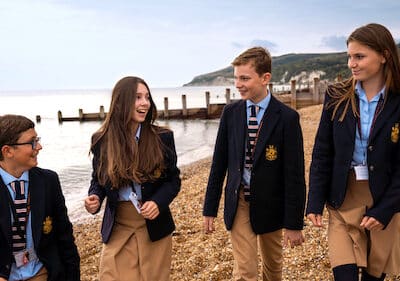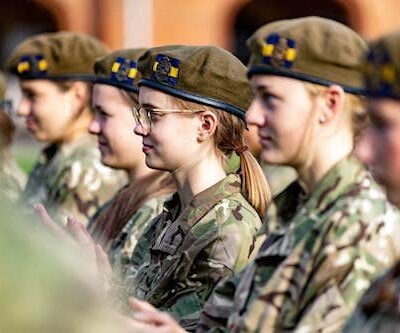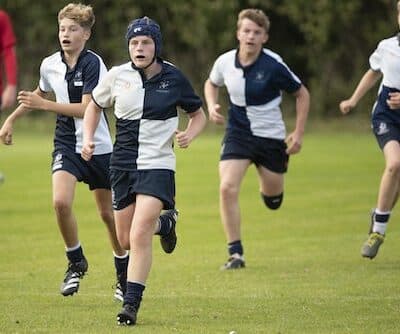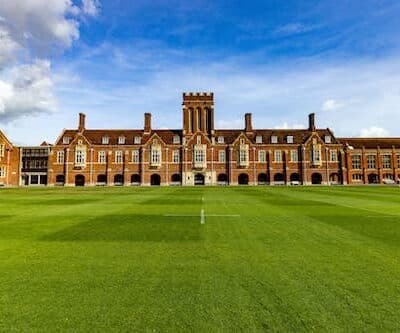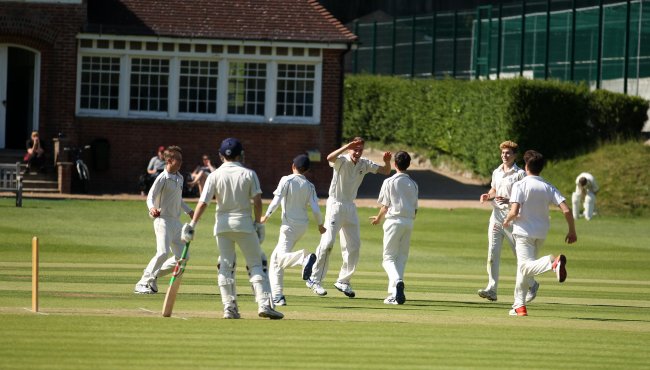Army CCF Camp
While the majority of pupils were catching up with family – or on sleep and laundry – 17 College pupils set off for Crowborough on the day after Speech Day to spend the first week of their summer holidays on Army Camp. For the second year, our numbers were boosted by a group of Year 9 pupils from Ratton School who have been training with the College CCF in our partnership initiative.
Monday morning saw us making our way into the woods for some paintball target shooting, the first element of a varied range day that saw the cadets fire all three of the main cadet weapons systems: the Scorpion Air Rifle, the small-bore No.8 Rifle, and the full-bore Cadet GP Rifle. The cadets also took on the challenge of an Army obstacle course, had a go at archery, and greatly enjoyed the mayhem of a series of outdoor Laserquest team battles.
Tuesday, a day of fieldcraft training at Pippingford Park, was a real scorcher. With the safety staff keeping a close eye on the soaring temperature, and the school staff keeping a close eye on the cadets, our group did well to keep hydrated and motivated and was able to undertake three of the four planned training activities: an interest stand handling British Army equipment and foreign weaponry, an introduction to the doctrine of ambush drills that culminated in a short exercise firing blanks, and a sniper stalk to test individual fieldcraft skills. By mid-afternoon, the temperature had reached a critical point and we missed out on the fourth – and most demanding – activity. Nevertheless, the cadets had proven that their weapons handling skills were good, and their attitude towards the activities was the best of the four school contingents out on the area that day.
With the temperature continuing to rise, training for the Wednesday was condensed into a long morning, with just an hour given over to each of four military skills activities. While the first aid training was a giddy rush, the command tasks were all enjoyable challenges (and one of our teams recorded the day’s fastest successful traverse of a simulated minefield), the cadets learned how to make a fire in a survival situation, and the shortened day’s training ended with a refreshing dip while improvising a flotation device at the watermanship stand. Back in camp for the afternoon, we settled in the shade to a leisurely session of boot polishing, began to think about teams for the following day’s competition day, and exchanged sweaty and dusty uniforms for fresh sets in readiness for this.
Thanks to a faulty alarm clock and a broken lace, it proved a challenge to muster a full team for the light breakfast laid on at 0600 prior to our school’s slot in the March & Shoot competition. (This had swiftly been dubbed the "March & Arch" by one wag when it was announced that, for some inexplicable reason, cadets would shoot with bow and arrow rather than rifles this year.) At least the ten cadets were on time for their warm up at 0650 prior to completing a fast circuit of the camp, after which four went off to shoot while six were put through their paces on the obstacle course. When the scores were totted up, we were just outside the medal positions, in fourth place. Nine other events followed (at more agreeable times) and our contingent put in a different team for each event in order to involve everyone in something they had volunteered to try. While we by no means repeated the remarkable success of last year’s camp, we did score first place in one event: survival – ours was the fastest team to gather wood, build and light a fire and boil enough water for a cup of tea. A very British outcome for the contingent from a genteel seaside town!
We stepped off on our tactical exercise during the late morning on Friday, following a plan that allowed for both the exceptional heat and the relative inexperience of field manoeuvres of a sizeable proportion of the contingent. A platoon harbour was duly established, from which a full strength fighting patrol was sent off to ambush the enemy party (a role filled with alacrity by our two senior cadets). The staff were pleased that the cadets took this seriously, were very quiet and moved with appropriate care to and from the objective. The weather broke upon our return and a dramatic thunderstorm sent everyone scurrying for their shelters. After preparing their own breakfast the next morning, the platoon found itself under an attack which it fended off for as long as ammunition would allow, before a hasty withdrawal and the end of the exercise. So ended a week that certainly maximised the cadet experience for those who attended.
Report by Captain PD Martin, Officer Commanding, Army CCF Section
